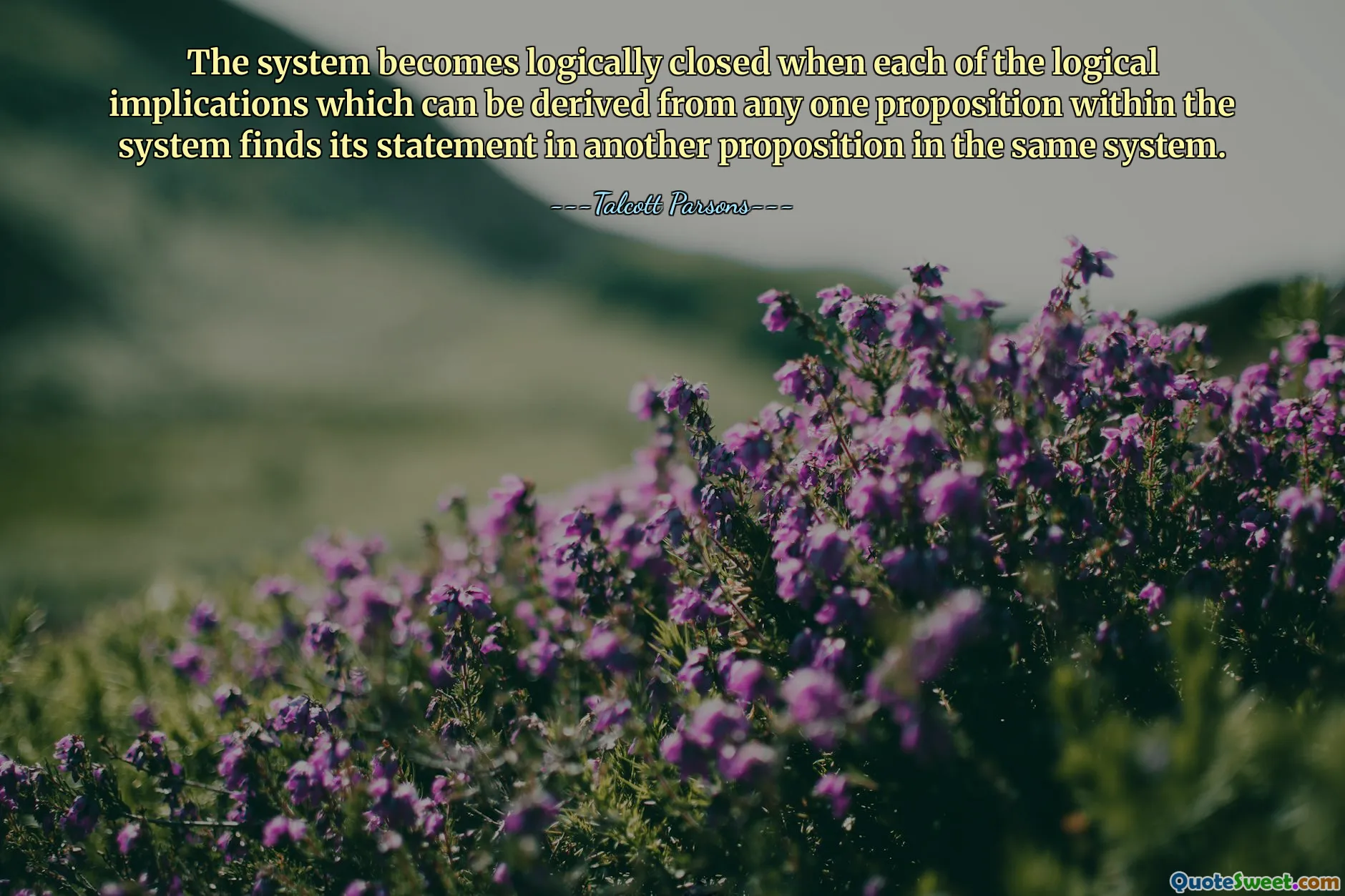
The system becomes logically closed when each of the logical implications which can be derived from any one proposition within the system finds its statement in another proposition in the same system.
This quote highlights a foundational aspect of formal systems and logical coherence. When a system is considered 'logically closed,' it signifies that all implications and inferences that can be derived from within the system are already contained and accounted for in its propositions. This closure ensures consistency and completeness within the system, as no external assumptions are necessary to validate the internal logic.
From a broader perspective, such a system embodies the principle of self-sufficiency in logical frameworks. It is a critical property in formal logic and mathematics because it secures the integrity and reliability of deductions made within the system. When all implications are represented internally, it reduces the risk of inconsistencies or gaps that could compromise the system's validity.
This concept also resonates with ideas in epistemology and systems theory, emphasizing the importance of a closed and self-consistent framework for understanding complex structures. In practical applications, ensuring a system's logical closure requires meticulous formulation and verification of all potential implications, which can be a complex but vital task for developers of formal models, theories, or computational systems.
In essence, this quote underscores that the completeness and self-containment of a logical system is crucial for its robustness. It highlights the importance of internal coherence, where every logical derivation can be mapped back to a proposition within the same system, fostering trust in the conclusions drawn and the methods used.
---Talcott Parsons---











